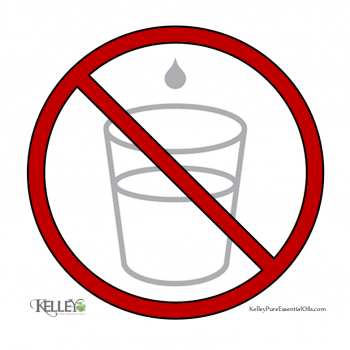Welcome Sign in
Product successfully added to your shopping cart
There are 0 items in your cart. There is 1 item in your cart.
Online only
Kelley Oils Internal Use Statement
Essential oil internal use is a huge misunderstood topic. Essential Oils need to be treated with respect and used with caution.
New
More info
Kelley Oils Internal Use Statement
This is huge misunderstood topic. Some companies claim this and it can be extremely dangerous. There are three parts to this.
GRAS # - The FDA issues a GRAS (generally recognized as safe) number. This number is issued to a chemical or substance that is added to food that has shown scientifically to be safe under the conditions of the intended use. Some companies are taking this GRAS number and are making these claims by that criteria.
The problem is that in Europe, they do take them internally and they are under the care of a physician but in the United States, the GRAS number is intended as a flavoring and using the GRAS number as permission to use them internally when the "intended use" is for flavoring, and not therapeutically, is wrong, dangerous and very misleading.
Purity – The majority of suppliers have their oils tested for purity. It is not just one or two companies that can make that claim. You need to know your supplier, talk with them about their procedures and trust them on what they do.
Therapeutic Properties - Just because the essential oils are from nature or they are labeled "pure", "therapeutic", (there is no governing body that has the authority to do this), "certified" (by whom?, usually it's in house) doesn’t make the oil safe to ingest. The therapeutic properties is why we use essential oils and it’s the components that provide this.
However, the components have safety concerns. Ingested oils are filtered in the liver. The liver breaks down the oils and can change the therapeutic properties from the intended use. For example, a gentleman was taking eucalyptus by capsule for years to help build his immune system. At an annual checkup, he was diagnosed with cirrhosis of the liver and he was not a drinker. Essential oils can accumulate in your system. One or two drops a day in time can add up in your system. There are also caustic reactions, skin sensitivities, tender mucus membranes that can be easily irritated and the list is getting longer. Once it goes down - it's hard to take away.
That is why internal use of essential oils should be directed by a health care practitioner trained at an appropriate clinical level. An appropriate level of training must include chemistry, anatomy, diagnostics, physiology, formulation guidelines and safety issues regarding each specific internal route (oral, vaginal or rectal). Not at parties, by a person that has some in house training and who’s main reason was to make money selling essential oils.
Our medicines have been formulated from the same components that are in our essential oils, and you would NEVER take a medication without knowing all the side effects, dosage, etc. So you should be treating essential oils with the same respect.
When is question … inhale.




